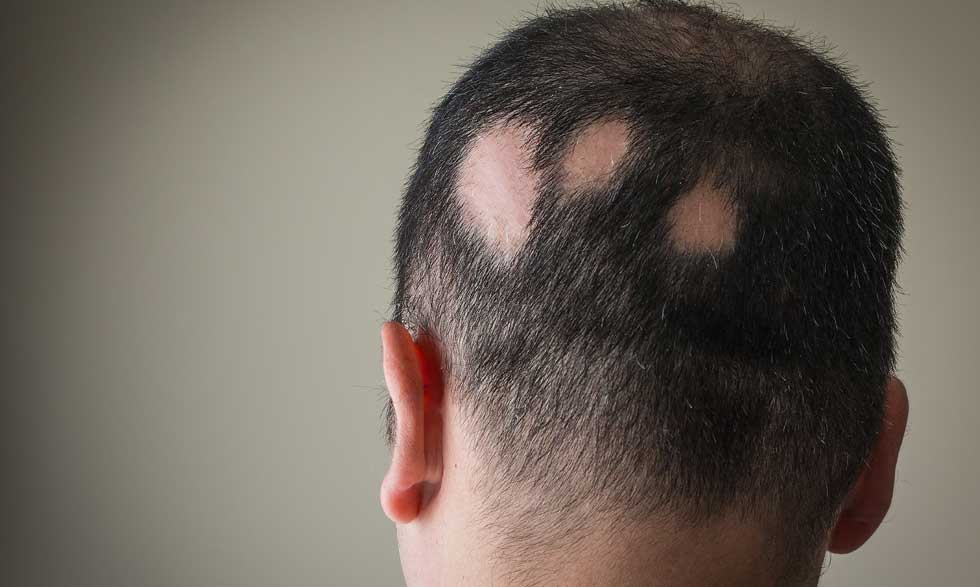Health Topics

5 tips for living with alopecia areata
Therapy, makeup, wigs, and education offer hope
Alopecia areata is a difficult disease to cope with, but there are ways for people to feel better.
The condition causes your hair to fall out. Some people lose all of their hair, but most people lose hair in small, round patches.
While it isn't painful, the condition can cause serious confidence and self-image issues.
Your genes and the environment work together to determine if you get alopecia areata.
While there isn't a cure, researchers like Angela Christiano, Ph.D., and others supported by NIH are working to improve medicines to help hair grow back. Talk to your doctor about which medicines could help you.
There are also ways to cope with the mental hurdles that come with alopecia areata. If you or someone you love has alopecia areata, you can:
| 1 | Learn about it—Resources like MedlinePlus and the National Institute of Arthritis and Musculoskeletal and Skin Diseases offer trusted information on treatment options, clinical trials, and more. |
|---|---|
| 2 | Protect yourself—Wear sunscreen on any bare areas of skin when you go outside. If you are missing eyelashes or eyebrows, eyeglasses and sunglasses can help. |
| 3 | Find creative ways to feel confident—Try wearing a wig, hairpiece, scarf, or cap. Cover small patches of hair loss with a hair-colored powder, cream, or crayon. |
| 4 | Talk to people—Having a community you can turn to will help you feel supported. If you’re comfortable, share your experience with friends, family members, or colleagues who can listen and provide comfort. |
| 5 | Seek help from a professional—If you notice increasing feelings of depression or anxiety, try talking to a licensed therapist or counselor. They can offer support, ideas for coping with stress or anxiety, ways to relax, and more. |






